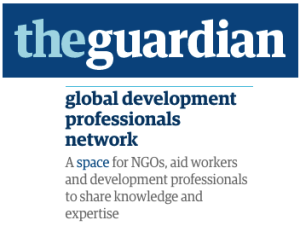 DISCLAIMER: The information provided on this blog and associated web site does not, and is not intended to, constitute legal advice instead, all information, content, and materials available on this site are for general informational purposes only. Information on this website may not constitute the most up-to-date legal or other information.
DISCLAIMER: The information provided on this blog and associated web site does not, and is not intended to, constitute legal advice instead, all information, content, and materials available on this site are for general informational purposes only. Information on this website may not constitute the most up-to-date legal or other information.
I write a lot about dealing with problem volunteers – volunteers that are bullies (one of my most popular blogs ever), volunteers that are more focused on their vanity and selfies than service, (another super popular blog), entitlement volunteers (“you should just be glad I’m here!”), etc. But in response to some of these blogs, I’ve gotten comments from frustrated volunteers, and I’ve been asked some pointed questions, like:
what about when the problem is the volunteer manager’s lack of ability, or when the org is in need of upgrading capacity and the volunteers are the victims of that process?
Absolutely, not all community engagement problems are because of volunteers, and I would hate for anyone to think I’m saying that. I love volunteerism – I wouldn’t promote volunteer engagement and demand standards for such if I didn’t. All too often, people that want to volunteer are turned away by mismanagement, and people trying to volunteer are not properly supported. That deserves my sympathy and attention.
There are times when I’ve been a volunteer myself and I have been woefully mismanaged, I haven’t felt valued, I’ve felt ignored by the person that’s supposed to be supporting me, I was left to do all the work while the lead volunteer was a no-show, I was shut down when I tried to point out a problem or make a suggestion, etc. Maybe you, as a volunteer, have felt that too. Maybe you see problems with other volunteers that management doesn’t seem to see. Maybe you see inefficiency, even incompetence. Maybe you see things that have you worried about safety. Maybe you see violations of policy – or a need for a policy. Maybe you have a great idea that really could help dramatically – but the manager of volunteers turned you away.
How to complain, or make a suggestion for a management change, as a volunteer? And to whom? That’s trickier than it sounds. It depends on the nature of the complaint or suggestion, your relationship with the organization, your desired outcome, what’s best for those served by the organization, and more.
Absolutely, if you see or experience something dangerous while you are volunteering, something that could harm someone – or you suspect has harmed someone – document what you have witnessed or experienced: the date, the time, what you saw or heard, how it is dangerous, etc. Email this information to the person in charge of volunteers, the director of programs, perhaps even the executive director or anyone else within the organization you feel should know about it. Depending on the situation, you should also call those same people and tell them they should immediately read an email you have sent regarding a dangerous situation at the organization. Be ready to meet face-to-face to talk about the dangerous situation you have witnessed or experienced. Please don’t ever hesitate to report a suspected dangerous situation, where a client, volunteer, staff member or anyone could be, or has been, harmed.
If it’s a criminal situation regarding safety, such as harm to a child, I would also contact police, without waiting for permission from the organization. If I think a child or anyone is in physical danger, I’m going straight to the police, and if that costs me my volunteer position because the organization would have preferred I contact senior staff members first, so be it. When it comes to safety, I don’t mess around, I don’t hesitate, and the situation regarding Jerry Sandusky and Penn State a few years ago only intensified my feelings about this.
If you are being sexually, racially or culturally harassed, absolutely complain to your supervisor and his or her supervisor, in writing. Have dates, what was said or done and by whom, etc., and how you want the situation resolved. If your supervisor doesn’t act, contact his supervisor the same way, along with the date you first reported this to his or her subordinate.
For non-safety complaints – for complaints about inefficiency, lack of support, a situation mishandled, ongoing mismanagement, abrasive work styles, hurt feelings, etc., ask yourself this question: How is the situation or circumstances hurting the organization, volunteers, clients, public relations and/or the bottom line? Document answers to those questions. Be clear about what is happening, the dates of incidents, and, if possible, how it’s adversely affecting the organization, its clients, etc. Once you have this information clearly stated, ask for a meeting with the person in charge of supporting volunteers. You don’t have to present your written information – in fact, doing so may escalate emotions if you walk in with such a document and hand it over. Instead, you may want to keep the documents as just your own notes to speak from, at least at first. You want to stick to facts, like “When I showed up at the work site, there was no guidance on what I was supposed to do, in contrast to what you (or someone else) told me, and I just walked around for an hour not doing anything”, or “I was assured that the other volunteer had been trained, but when she got there, I realized she had not been briefed at all, and it really made the organization look poorly run to those in attendance” or “I have sent emails asking for guidance on these dates, and I have never gotten a response.” Avoid opinions, such as “the manager of volunteers is in need of upgrading her skills” or “I just really don’t like so-and-so’s style of working.” Opinions are subjective and easily dismissed, in contrast to dates and examples and descriptions of circumstances, what was said, what was done, etc. You want to preface complaints with “I’m concerned that…” or “I am worried that…” Make it clear that you aren’t there to just complain because of your hurt feelings – you are there to try to improve a situation that could be leading volunteers to leave, that could be making clients dissatisfied, even angry, that could be leading to a bad reputation for the organization in a specific neighborhood, that could lead to a negative review online, etc. Your goal is to stay fact-based and always emphasizing what’s best for the organization and all volunteers, not just you. Have in mind what you want as a result of this complaint: Volunteers to receive more immediate responses to their emails or phone calls? Volunteers to receive more information from the organization? Volunteers to receive more training? Someone in particular to be better supervised? Someone in particular to receive better training? Someone specifically to be dismissed? What would a resolution of this situation that you are reporting look like? Try to offer realistic ideas for solutions, if at all possible.
If you want to offer a suggestion about software you think the organization should be using, or a different way to support volunteers, such as training videos on YouTube, or a change in the minumum amount of hours volunteers need to give a month, or that the organization should better incorporate virtual volunteering, by all means, make the suggestion. You could make the suggestion verbally in a monthly meeting between volunteers and the staff supporting them, in an online community for volunteers at the organization, or in an email to the person in charge of managing volunteers. Think about how you would like to be approached if someone had an idea of how to do your work better, and do the same in making your suggestion. If you can show that this idea might save the organization money, definitely bring that up. Also think about what resources it would take to make this change: money? additional staff? time? training? Are you willing to commit to any of those needs to help make the change happen? It can be frustrating to make a suggestion for a simple change, like an additional sentence on a web page, or use of a particular keyword tag on Twitter, and never get a response, or be told it’s not possible to do. How you handle that frustration is up to you: Drop it? Try again in six months? Try again when management changes? Bring it up every time you get the opportunity? Leave the organization and try to volunteer elsewhere? Think about what would be best for the organization and those it serves by your actions first, and also what is best for you.
If you feel that you need to circumvent the person in charge of supporting volunteers and go to someone senior with your complaint or suggestion, you can certainly ask to meet with the head of programs or even the executive director, detailing the issues and being clear about why you are circumventing the manager of volunteers. However, know that it’s likely that the manager of volunteers will be angry with you or feel hurt by you for this circumvention, and your relationship with that person may be irreparably harmed. It may not be possible for you to continue to work together, and therefore, the organization may want you to leave rather than address the issue with the manager. You may decide that you can no longer enjoy your time there or that you would no longer be welcomed at the organization. I’m not urging you not to go to senior management if you feel that’s best for the organization – quite the contrary! I’m trying to be very realistic about what will happen if you do. Are you ready to put what’s best for the organization and those it serves above your desire to continue to volunteer with the program?
This is the point that I usually get asked, “But what are my rights as a volunteer?!” You have a right to be safe, to not be harassed, not to be harmed, not to be put into a situation where you feel harmed, not to be exploited, etc. But you have no right to be engaged as a volunteer. You have no right to have a volunteering experience that you love. An organization can dismiss a volunteer for any reason – or no reason at all. An organization is under no legal obligation to provide terrific volunteering experiences – or to involve volunteers at all. Some organizations value the input of volunteers very much, and others see volunteers as merely people willing to work for free and save the organization money. The organization may see dismissing you as a volunteer far easier than dealing with your complaint.
Please don’t think that because you have volunteered for 10 years at the organization while the manager of volunteers has been there for just a year or two that your opinion is somehow more important that hers or his. Also, it is very likely that complaining creates tension at the organization for you and others. Things may get worse before they get better. If you have visions of the manager of volunteers being put through a performance improvement plan, or dismissed, while you are celebrated for your complaints, think again. As a whistleblower, don’t be surprised if you feel coldness from others at the organization, even if your complaint was absolutely justified. You may want to leave and find another place to volunteer once investigations are complete – or even before. Whatever happens, don’t be a volunteer bully . The priority of any organization, and everyone who works there, including a volunteer that complains, should be the mission of that organization and those the organization serves. Nothing except for safety should be more important than that. Keep that in mind as the consequences unfold from your complaint and if your complaint means you will leave the organization.
Regardless of whether or not you complain to the organization, or make a suggestion for change, what might be best for you is finding another organization with which to volunteer. How you leave an organization is up to you: you can make a formal break with a meeting or an email, you can just stop signing up for tasks and disappear, or you can say you want to take a break and just never come back. Just please don’t abandon an assignment before you have completed it. I know a lot of managers of volunteers are reading this and thinking, “It’s so unfair to just leave without explanation!” To which I say: if a volunteer does that to you, maybe it’s because you don’t take complaints well. Maybe you don’t create an environment where a volunteer feels comfortable offering a complaint or suggestion. Volunteers will often show you as much respect and attention as you have shown them. If you want volunteers to tell you why they are leaving, ask them.
What if you are asked to leave an organization as a volunteer? First off: you aren’t alone! It happens. It happened to me! It can be hurtful to hear, “I just don’t think I can work with you anymore” or “I think it would be best if you found somewhere else to volunteer.” It’s entirely your decision at that point to complain, if you haven’t yet, to more senior management. All the previous rules apply: stay fact-based, have dates and descriptions of what was inappropriate or should have been a better experience, keep opinions to a minimum, and be clear about what the consequences could be for the organization if the situation is not addressed.
Should you, the disgruntled volunteer, blog about your negative experience, or write a Yelp review? I won’t tell you not to. What you need to consider is what is best for those served by the organization and what is best for you. If you truly feel that those served by the organization would be best served by your going public with your complaints, then that would be a valid justification for doing so. Otherwise – why would it be worth it? In the moment, it may make you feel great deriding an organization online via your blog or an online review, but if another organization where you want to volunteer reads that, or potential employers reads that, will it hurt you in some way? If you do it, be prepared for a call from a local media organization – they may want to do a story about your experience and investigate further. If you choose to do it, be fact-based – no opinions, no insults, no statements like “Stay away from this organization!” – and respect the confidentiality of clients.
You could even write a song about your frustration, as Dave Carroll did about his attempt to volunteer at his child’s school. I really do think Mr. Carroll was doing what he thought was best for the organization and the kids, and I hope authorities listened to what he was saying. I’d be happy to have him as a volunteer (with the hopes I would get a really nice song about his experience out of it).
I have blogged about negative experiences as a volunteer myself, but without naming the organization. As a consultant regarding nonprofit management, including volunteer engagement, I wanted to use these experiences to educate others, but I saw no point in naming the organization I was complaining about – in some cases, I made my feelings clear directly to the organization before I left, and in some cases, I just quietly disengaged – and they never called to ask me why I had stopped signing up for gigs. Here are some examples of my blogs about or inspired by my own bad experiences as a volunteer:
Some volunteers have become so frustrated that they’ve left a nonprofit and then started their own rival organization, and that’s fine too – though it’s easier said than done. Funders may be reluctant to support you if you are an organization born of anger.
When you leave an organization as a volunteer, you may want to let people know if they closely identify you as being a volunteer at that organization, if they might go to the organization looking for you, if a lot of your friends are also volunteers at the organization, etc. You may want to draft some messages for social media or to send out via email. These messages should be unemotional, with no accusations or blame at all. For instance, for Facebook, your message could be:
Yesterday was my last day at xxxnameoforganizationxxx. Very proud of all I did there. On to a new volunteering adventure! I can be reached at xxxemailaddressorphonenumberxxx.
The policies of the organization may prevent you from staying in contact with clients after you leave. Respect those policies if that’s the case. If clients do get in contact with you, think very carefully about what you are going to say to them, if the relationship is proper to continue, etc. Regardless of official policy, you are ethically bound to make it clear to them, if they contact you, that you are not affiliated with the organization anymore, that you are not a volunteer with the organization anymore, that you do not represent the organization anymore, etc. If volunteers want to discuss their experiences with you after you leave, make sure you continue to adhere to those confidentiality policies, and absolutely speak up and say, “I really don’t feel comfortable talking about this, because I think it’s a violation of the organization’s confidentiality policy.” Let the question what is best for the people served by this organization guide you in any communications and relationships with clients, volunteers and staff of an organization you have left.
How do you talk on your résumé or online profile about an organization where you volunteered but, in the end, you had an uncomfortable or frustrating experience? The same that you would regarding an employment situation that didn’t work out: you list it only if it was a long-term gig, or if you accomplished something at the organization that you are really proud of and that could not be denied by the organization. If you are proud of your work and feel comfortable sharing it, list the name of the organization and your accomplishments or duties at that organization and the time frame for such. Otherwise, leave it off. If you are asked in an interview for volunteering elsewhere, “Why did you leave that organization?”, you can say, “I was ready for a new volunteering opportunity at a different organization. It was time.” You could say, “My work approach wasn’t a good fit/was no longer a good fit for the organization’s work culture.” Be ready, in an interview, to talk about that work approach. For instance: “I believe in being very forthcoming and asking questions in staff meetings. My previous supervisor interpreted my questions as criticisms.” If honestly talking about your work style, a style you are unwilling to change, removes you from the running for a volunteering gig, then be glad you were up front about it before you were hired. That said, in an interview for volunteering elsewhere, you can ask some tough questions of your own, like “What is moral like here among your volunteers?” and “How do you handle complaints from volunteers? Can you give me an example of that process?” and “Do you regularly get new volunteers? Do they stay long? When they leave, why do they leave?”
Should you sue if you are fired as a volunteer? There are two scenarios where you might want to sue: (1) when you can prove that you have been financially and/or physically harmed by the organization’s actions, or inactions, regarding your volunteering. If you have been sexually, racially or culturally harassed while volunteering, and you do not feel the organization responded the way they should, you could explore bringing a suit, but think about what you want as a result of the suit: a court-ordered, public apology? a court-ordered training for all staff and volunteers to prevent this in the future? Money for yourself? And remember that your name will become public, and there may be media coverage of your suit – this can affect your future employment, not just your future volunteer engagement. (2) when you can prove that you weren’t a volunteer but were, in fact, an employee who wasn’t paid. In a small number of cases the UK and in the USA, the courts have found that a volunteer was actually an employee or a contractor who should have been paid, and the volunteer won back wages.
One last thing: when a volunteering situation ends in anger or sadness, take time to mourn and to let any raw emotions heal. You may need to cry. You may need to spend some time being angry. That’s absolutely fine and completely normal. Make time to do that. If you have a very trusted friend or two you can talk to, that would be good to be around and talk to about how you are feeling, do so. Definitely stay off social media at such times.
This is a lot to consider. I’ve tried to be realistic and think about a variety of scenarios. If I’ve missed one, or your want to ask an additional question or make an additional point, I hope you will comment below.
October 23, 2020 update: there are a lot of places online where you can submit a public negative review of a nonprofit, per your negative volunteering experience (or negative experienve as a client and, in some cases, as an employee). These include:
But SHOULD you use any of those sites to post a public review? I discuss this earlier in the blog, but let’s focus on it specifically, in the case of online review sites and a blog of your own: If you use your real name or any email address that is affiliated with you, your identity will be known to the program and people you are complaining about, and a search of YOUR name or email address on a search engine will bring up your negative review to anyone – including current and potential employers. Are you okay with that? What might be the consequences for YOU, personally, professionally, or socially, as a member of your community, if you publicly post a negative review? Are you willing to talk to a newspaper reporter or TV reporter who decides to write a story about this situatution? Also, do you now how to write a truthful, fact-based review such that you would win a case if the company attempted to sue you for defamation/libel?
If you do want to submit a negative online review of a nonprofit on such public sites, keep it fact-based, as outlined earlier in this blog, in the paragraph that starts with “For non-safety complaints…” You want to stick to facts and be absolutely truthful, both because that’s the ethical thing to do and because it will protect you in a defamation/libel suit. For instance, a fact-based complaint is “This nonprofit charges people a hefty fee to volunteer, and I still don’t see how anything I did for this agency as a volunteer benefitted anyone like they said it would. Also, the Executive Director screamed at me in front of all of the other volunteers because I asked questions about where the money volunteers have to pay really goes.” Those are all fact-based comments, not just opinion. Avoid opinions such as “I think this place is stupid.” Opinions are subjective and easily dismissed and can make YOU look bad, in contrast to examples and descriptions of circumstances, what was said, what was done, etc.
Your goal in a negative review that will be public online should be to stay fact-based and to want an outcome that helps others – that could be a goal of helping people who might be thinking about volunteering at that organization, that could be a goal of hoping the board of directors are prompted to take corrective action and, in the most dire of circumstances, it could be to get the Internal Revenue Service or your state attorney general’s office or state’s department of justice office (here’s the one for Oregon, for instance) to delve deeper into a nonprofit program’s operations. The IRS and state offices are concerned with things like:
- Directors/Officers/Employees using income/assets for personal gain.
- An organization engaged in commercial, for-profit business activities that are unrelated to its mission.
- Income/Assets used to support illegal or terrorist activities.
- An organization involved in a political campaign.
- An organization engaged in excessive legislative or government lobbying activities.
- An organization refusing to disclose or provide a copy of Form 990.
- An organization failing to report employment, income or excise tax liability properly.
- An organization failingto file required federal tax returns and forms.
- An organization engaged in deceptive or improper fundraising practices.
If you have benefited from this blog or other parts of my web site and would like to support the time that went into researching information, developing material, preparing articles, updating pages, etc. (I receive no funding for this work), here is how you can help.
Also see:
Creating a Speak-up Culture in the Workplace
With volunteers, see no evil?
Safety of volunteers contributes to a shelter closing
Keeping volunteers safe – & keeping everyone safe with volunteers
A grassroots group or nonprofit org = disorganization?
VA: a culture of fear, silence & misplaced priorities
Excuses, excuses
Handling Online Criticism









